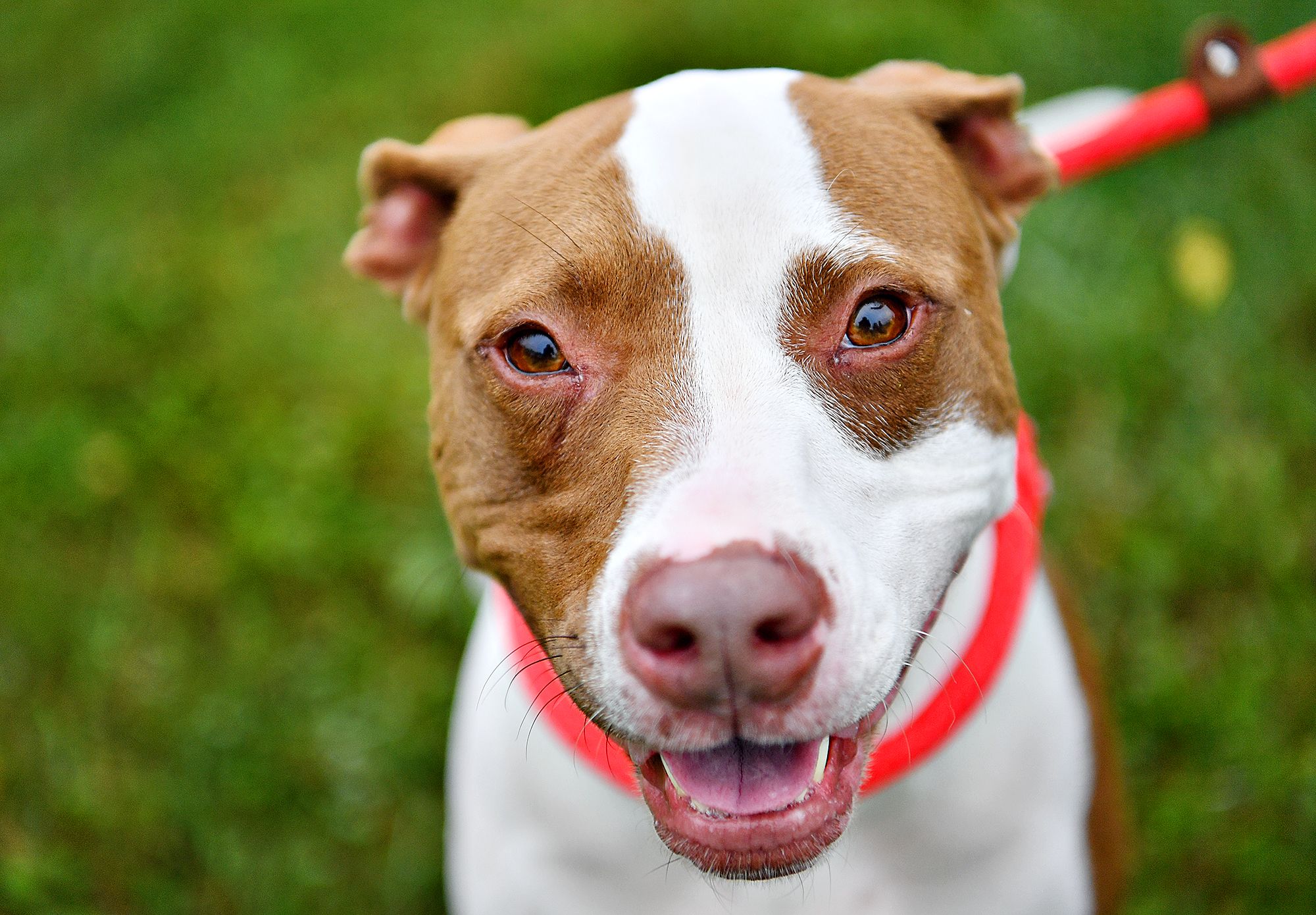
Photo provided by Dawn J. Sagert/The York Dispatch
We champion anyone inviting a shelter dog into their lives and homes and we understand the joy that brings to the dog and the people. Our intent is to help that goal be successful by providing information that may not have been considered to make adopting a shelter dog become a truly joyous event.
If you believe that you are ready to add a dog to your life, it is best to do some evaluation of your lifestyle first. The more honest you are with yourself when answering these questions, the easier your decision will be. In addition, remember that loving a dog as a member of your family is a long-term commitment, so examine not only what your life is like now but what it may be like in the next ten years.
How much time can you devote to a dog?
Dogs need more than food and the occasional walk. They are social animals who want and need dedicated time with you and other family members. Time to play, cuddle, walk, and learn is a necessity for most dogs. “Dogs and cats who don’t receive daily interaction have a greater risk of developing behavioral problems, anxiety and obesity,” says Dr. Ernie Ward, a small animal veterinarian from North Carolina.(The Top 10 Questions You Should Ask Yourself Before You Adopt a Pet) If you have a busy family or work life, will that leave you enough time and energy for a dog? If you spend a lot of time away from home, what happens to your dog who has been waiting all day to spend time with you?
Will you have help with your dog?
If others live with you, does everyone want a dog? Are there compromises that need to be figured out before a dog enters your family? Will others share the responsibilities? Does everyone in the family agree to the house rules for the new dog? For instance, will the dog be allowed on the furniture? Where will the dog sleep? It can be very confusing to a dog if he is sometimes allowed to do something, such as lie on the furniture, and other times not allowed.
If you live alone, are there others who can help you if you work late, travel, etc.? If the dog you adopt is not yet housetrained, is there a trusted person who can come during the day to make sure your dog gets out to the bathroom and has some time to walk or play? Before you bring a dog home, can you set up a group of trusted individuals on whom you can rely for help? You may need to check out dog sitting services or boarding or doggie daycare facilities if necessary.
Do you have the time and resources to train your dog?
Dogs are going to make mistakes. Chewing a rug, raiding the garbage, pottying in the house, chasing anything that moves, barking, jumping up on people, and more are all possibilities when you first welcome a dog into your life. Can you commit time, effort, and patience to training your dog not to chew the carpet or raid the garbage, for instance? Dogs do not naturally know what your household rules are. They need to be taught, and that requires time and consistency and often the help of a training class. “Too many new pet parents believe that they can simply enroll in a puppy class and — voilà! — a perfect puppy,” Dr. Ward says. “Puppy classes are only the beginning.” The real education happens at home — several times a day. “It’s not hard or even that time-consuming,” he says. “But it must be done in order to have a well-mannered companion.”
While life would be easier if our pets behaved exactly as we’d like from the very beginning, the truth is that a new dog may have serious behavioral issues or develop them such as reactivity, fear, or resource guarding of toys, food bowls and /or people, which would require special training. Dogs go through critical growth periods much the same as children. Are you prepared to recognize the critical periods and help them if they need it?
If you have another pet, will it accept a new dog?
Multi-pet households are certainly workable, but it often requires special planning. It’s best to introduce the animals on neutral territory before you adopt. “It gives you a chance to watch them interact and see if they’ll be amiable housemates,” says animal trainer Andrea Arden.(The Top 10 Questions You Should Ask Yourself Before You Adopt a Pet) Even if that meet-and-greet goes well, things may be different at home, so have a plan. If, for instance, you have a cat, and you are unsure whether your new dog might chase the cat, be sure to set up the house to protect the cat until the animals get used to each other. That may mean being able to block off rooms with gates.
Do you have small children?
“Contrary to popular belief, there is no species or breed that comes ready to live with kids. ‘If you have children, you must first teach them the rules of safe pet conduct: No teasing, pulling, pushing or climbing on animals,’ Andrea Arden says. You’ll also need to spend ample time meeting different animals (before you choose one), so you can observe tolerance levels, responsiveness to training and the ability to bounce back from jarring incidents.” (Michelle Leifer, The Top 10 Questions You Should Ask Yourself Before You Adopt a Pet)
No parent needs to be reminded about how much time and attention children need. Be aware that dogs also need time and attention, especially puppies and new adoptees. Be honest with yourself about whether you have the time to give attention to a dog along with your children and other responsibilities. Some people find that waiting until children are older or adopting a more mature dog suits their situation better.
Can you afford a dog?
Providing for a dog costs money for nutritional food, shelter, and medical care. Besides yearly check-ups, could you afford a costly emergency if one arose?
Choosing the Dog That Is Right for You
Once you have decided that you are ready for a dog, which one is right for you? Here are some things to consider:
Dogs have different needs and characteristics. For instance…
- Some need a lot of grooming.
- Some breeds have a tendency to bark more than others.
- Some require a lot of exercise and an owner who can fill that need.
- Some are escape artists and benefit from fences to keep them safe.
- Some are more protective than others.
- Some are better with children than others.
Where you live may affect the type of dog that is best for you.
- Small houses and big dogs do not mix well.
- Some apartment complexes do not allow dogs or have restrictions on breeds and/or size.
- Some dogs really need outside space for exercise.
So how can you make a wise choice? One way is to take one or more “quizzes” designed to help you pinpoint types of dogs that would make good companions for you or perhaps even help you to discover a type of dog that does not really fit your situation well. Below are links to several “dog selectors.” It would be a good idea to try a few because each is organized in a different way and using several will give you a broader idea of dogs that may be right for you.
Though, please keep on mind that even if you have had a particular breed of dog before and are considering adopting another dog of that same breed, the new dog needs to be treated as an individual because all dogs of a certain breed do not respond or behave the same way.
Animal Planet Dog Breed Selector
For more information on this topic, please watch our Solving and Preventing Dog Problems seminar, "Are You Ready to Adopt a Dog?"
Deb Byloff and Cathy Hivner are dog trainers who have been volunteering with the York County SPCA for nearly 15 years. They have taught our Canine Good Citizenship classes, Obedience Training Seminars, and Solving and Preventing Dog Problems seminars. Both Deb and Cathy have also trained their own dogs as well as the community's dogs at Papillonia Dog Training Academy.








